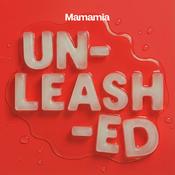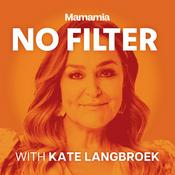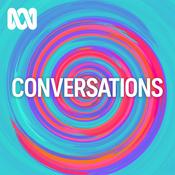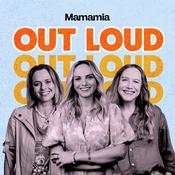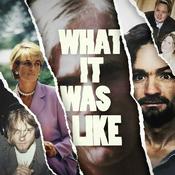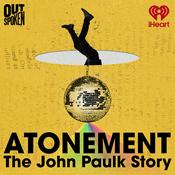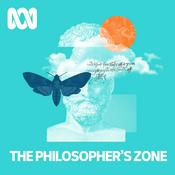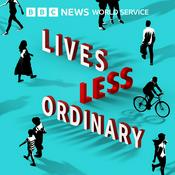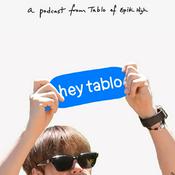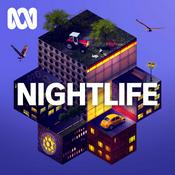247 episodes
- In this episode, Meghan talks with science writer and professional skeptic Michael Shermer about his new book Truth: What It Is, How to Find It, and Why It Still Matters, and about why agreeing on basic facts has become so difficult, even when everyone is looking at the same video. They discuss Minneapolis, ICE raids, viral "exposé" culture, the transgender movement, the lab leak theory, the Jeffrey Epstein case, the way activism distorts institutions that are supposed to care about evidence, and why humans are much better at defending beliefs than revising them.
Note that this episode was recorded on January 20, four days before the killing of Alex Pretti during ICE protests in Minneapolis. We discuss the killing of Renee Good.
Guest Bio
Michael Shermer is the Founding Publisher of Skeptic magazine and the host of the podcast The Michael Shermer Show. For 30 years he taught college and university courses in critical thinking, and for 18 years he was a monthly columnist for Scientific American. He is the author of Why People Believe Weird Things and The Believing Brain, Why Darwin Matters, The Science of Good and Evil, The Moral Arc, Heavens on Earth, Giving the Devil His Due, and Conspiracy: Why the Rational Believe the Irrational. His new book is Truth: What it is, How to Find it, Why it Still Matters. Follow him on X @michaelshermer. - Jacob Savage, author of the ultra-viral Compact essay "The Lost Generation," was digital media's man of the month in December. Meghan interviewed him on December 26 for a special episode for paying subscribers, and here it is now from behind the paywall. Jacob's argument in a nutshell, is this: Starting around 2014, the push to diversify hiring in elite institutions, particularly academia, journalism/book publishing and entertainment, hit millennial white men hardest. Despite talent, hardwork, and even privileged connections, many were denied professional opportunities solely because of identity. Many were left stuck, sidelined, or quietly drifting.
Jacob describes his path after graduating from Princeton in 2006 and sampling a few different fields before trying to become a television writer in Hollywood. Spoiler: it didn't work out well. Was his mistake his insistence that, as he writes, "the world treat me fairly, when the world was loudly telling me it had no intention of doing so"? Or were the systemic forces that conspired against him part of a larger movement that will have negative downstream consequences for generations to come?
Guest Bio:
Jacob Savage writes from Los Angeles. - We're back from the holiday break! (Sort of.) This interview with the inimitable Mike Pesca was recorded on Boxing Day and released right away to paying subscribers. Now it's available to everyone.
Host of The Gist and author of the newsletters Pesca Profundities and The Gist List, Mike has turned the humble "bonus segment" into a multi-level rmarketing scheme multi-tiered pricing philosophy. How does he do it? We'll find out!
We also talk about the hardest part of the creator economy (discovery), the incentives that reward martyrdom and outrage, and, most of all, Mike's December 26 Substack post No One's Nice To Bari Weiss. The CBS News editor-in-chief has been all over the headlines this past week after spiking delaying a 60 Minutes segment on CECOT, the notorious El Salvador terrorist prison, that was on the cusp of airing. Is it because the segment needed to "move beyond the forty-yard lines?" Or is something else going on?
Also: a discussion on a mega-viral Compact article about systemic discrimination against white millennial men, a cry against Hamilton erasure, and why my lack of grip strength is more than made up for by my alarmingly hyperextensive fingers. - This week, I talk with author Lili Anolik about her book on two writers whose lives overlapped in ways that were both unlikely and (in retrospect) inevitable. One is Eve Babitz, the exuberant chronicler of 1970s Hollywood. The other is Joan Didion, whose notoriously "cool," exacting style defined a particular vision of Los Angeles and helped make her one of the most influential writers of the last century.
The two writers are often framed as opposites, but in Didion & Babitz, Lili explores how they shared similar burdens of the times–burdens around creativity, ambition, and modern womanhood. If you enjoy literary gossip, this interview is for you. Our conversation includes some surprising and, at times, uncomfortable details about Didion's marriage, her relationship with her daughter, and her lingering feelings from an early romance with Noel Parmentel, a roguish figure who helped her start her career and introduced her to her husband, John Gregory Dunne. If you're among the devoted Didion faithful, you may hear things you didn't expect. If you're new to Eve Babitz, consider this your introduction to one of the great hidden figures of American literary life.
Guest Bio:
Lili Anolik is a contributing editor at Vanity Fair and a writer at large for Air Mail. Her work has also appeared in Harper's, Esquire, and The Paris Review, among other publications. She is the creator of the podcast Once Upon a Time… at Bennington College. Her latest book is Didion & Babitz, published by Scribner. - Writer and editor Thomas Beller joins me to discuss his new essay collection Degas at the Gas Station. The essays trace his experience of fatherhood through the landscapes of his own childhood, including the early death of his psychoanalyst father and Tom's later return—wife and children in tow—to the very Manhattan apartment where he was raised.
We talk about some of the fundamental conflicts of personal writing, including the ethics of writing about your children and even your ambivalence about parenthood. We also discuss why some writers feel trapped inside the genres that come most naturally to them, how the literary sensibility of The New Yorker shaped the styles of generations of writers, and how Tom is feeling about New York City these days. The episode was recorded on the morning of November 4, Election Day, and Tom talks about why he's voting for Zohran Mamdani—and why he thinks some of my early writing relates directly to Mamdani's platform.
Guest Bio:
Thomas Beller is a long time contributor to the New Yorker and the author of several books including Lost in the Game: A Book about Basketball, also published by Duke University Press; J.D. Salinger: The Escape Artist; and The Sleep-Over Artist. A 2024-25 Guggenheim fellow, he is a founding editor of Open City Magazine and Books and Mrbellersneighborhood.com, and Professor and Director of creative writing at Tulane University.
More Society & Culture podcasts
Trending Society & Culture podcasts
About The Unspeakeasy With Meghan Daum
Author, essayist and journalist Meghan Daum has spent decades giving voice—and bringing nuance, humor and surprising perspectives—to things that lots of people are thinking but are afraid to say out loud. Now, she brings her observations to the realm of conversation. In candid, free-ranging interviews, Meghan talks with artists, entertainers, journalists, scientists, scholars, and anyone else who's willing to do the "unspeakable" and question prevailing cultural and moral assumptions.
Podcast websiteListen to The Unspeakeasy With Meghan Daum, Unleashed and many other podcasts from around the world with the radio.net app
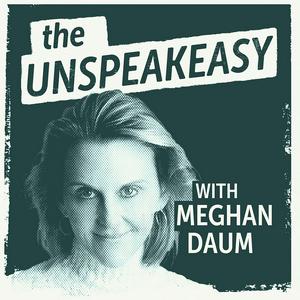
Get the free radio.net app
- Stations and podcasts to bookmark
- Stream via Wi-Fi or Bluetooth
- Supports Carplay & Android Auto
- Many other app features
Get the free radio.net app
- Stations and podcasts to bookmark
- Stream via Wi-Fi or Bluetooth
- Supports Carplay & Android Auto
- Many other app features


The Unspeakeasy With Meghan Daum
Scan code,
download the app,
start listening.
download the app,
start listening.

